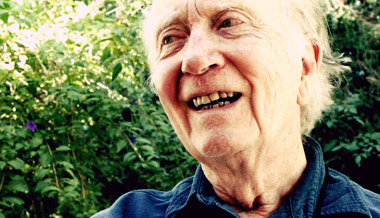In his 2010 book, Spiritual Bankruptcy, John Cobb discusses the process of secularizing. He wrote: Some secularizers are liberal, some conservative, some orthodox, some neoorthodox, some liberationist, and some progressive. I employ for myself the last of these labels. But if the best possibilities for secularization are now with progressives, it is only when progressives are defined as those who draw upon the best of liberalism, the best of conservatism, the best of orthodoxy, the best of neoorthodoxy, and, especially at present, the best of liberation theologies.
In my view, that’s an important paragraph because it seeks to affirm the best of these various traditions and it may help us get past today’s rampant polarization and tribalism. Like Cobb, I identify with the progressive “label,” but (like him), I try to avoid doing so in an us versus them kind of way.
Cobb says the word religion is problematic because it means many different things in different contexts. Cobb sees the process of secularizing as a way to highlight the best and most practical attributes of “the great traditions that have shaped the world in the past two or three millennia, especially Hinduism, Buddhism, Confucianism, Taoism, Judaism, Christianity and Islam.” Then, Cobb suggests that “instead of religions, we call these, and other smaller movements, Ways, or the traditional Ways of humankind.”
To begin to unpack some of Cobb’s points, I invite you to ask whether you self-identify as more secular or more religious. I grew up in a secular world and while matters of faith and theology are important to me, I served as a pastor for much of five decades with a secular self-consciousness. So, I’m very much at home with Cobb’s advocacy of the process of secularizing. Even as we respect the broad dimensions of the sacred, I agree with Cobb that one of our healthiest spiritual actions is to secularize (and thereby de-sacralize) aspects of religion that are today (as Cobb asserts) spiritually bankrupt.
Old Testament prophets did this in their day. Hence, Cobb’s subtitle: “A Prophetic Call to Action.”


I hope you will be giving examples of secularizing aspects of religion that are spiritually bankrupt. I am not clear yet on what that means.
I really like the idea of taking the best and most helpful of all the traditional Ways of human civilization
LikeLike
Maybe a way to start is to think of examples in history and then work our way forward.
In the first half of the 19th Century, the prevailing belief among a majority of white Christians in the US South was that slavery was not incompatible with biblical faith.
I would say that was bankrupt theology, although even after our most costly war, that view lingered for decades.
That’s one example that comes to mind. I’ll offer some more examples, likely as a wrap up on Friday.
LikeLike
When you secularize that bankrupt idea, do you mean you will remove it from being part of religious dogma so it can become just a flawed human attitude?
LikeLike
I think of it as removing the religious garb around which the idea is wrapped.
It’s making our ideas, traditions and preferences stand on their own without assuming the status quo is part of the divine intention, especially since much of the Bible (for example) is about stories that challenge the injustices of the status quo.
LikeLiked by 1 person